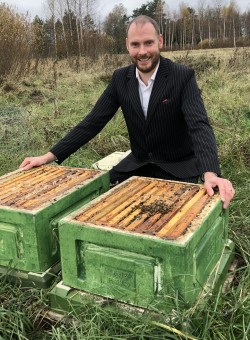|
|
ORGANISER

IMPORTANT DATES
1 March, 2024
Abstract submission form open
14 May, 2024
Deadline for abstract submissions
1 June, 2024 - EXTENDED until 12 June, 2024!
Early bird registration ends
1 September, 2024
Registration ends
WELCOME
It is our sincere pleasure to invite you to attend the 10th Congress of Apidology (EurBee), which will be held on 16-19th of September 2024 in Tallinn, Estonia. The Congress will be organized by the Estonian University of Life Sciences.
EurBee is the event, where old and new friends get together to exchange the knowledge of novel scientific findings, associated with honeybees and other pollinators. For young researchers it is a great opportunity to meet the leading scientists on their field. Establishing new connections and networking is extremely important for sustainable bee research.
The City of Tallinn is the capital of Estonia. Tallinn’s Hanseatic old town and nowadays modern architecture is a great mixture for every taste. Tallinn airport has good flight connections with different European airports making the travelling for EurBee guests especially comfortable. Due to good public transport the city centre is never more than 15-minutes drive away from airport, ferry, coach- or train station. Looking further, Estonian nature with its forests, bogs and swamps is unique in the world – all the EurBee guests will have the opportunity to experience its magic!
Experience magic – experience Estonia!

Sincerely Yours,
Risto Raimets
President of EurBee 10



